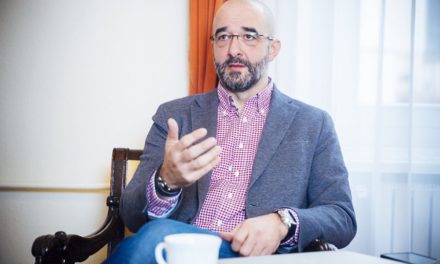The action against corruption is of strategic importance, since in addition to the perception of the country, it also greatly influences the development of the national economy. In order to overcome corruption and create a culture of public administration, the coordinated cooperation of state institutions is necessary, in which the prosecutor's office has a prominent role. Regarding Hungary's current corruption situation - primarily as a result of the unscientific and manipulative activities of an international left-wing network based on common funding - the general public opinion is that the situation is serious and is constantly worsening.
This view is supported in the press and public discourse by the Corruption Perceptions Index (CPI) of Transparency International, which is in an almost hegemonic position, even though
the perception indicator summarized in a single figure and generated using indirect sources is obviously not suitable for characterizing the real situation of corruption and its development over time. Neither the publicly available perception data, which is much more sophisticated than the CPI, nor the objective statistical data can be used to conclude that the corruption situation is continuously worsening.
Nothing supports this better than the fact that the renowned foreign policy expert Alex Cobham wrote in the columns of Foreign Policy exactly ten years ago that
the problem with the index is that perceptions are not facts, and in this case they can lead to a distorted reflection of the truth.
Cobham also pointed out that the original creator of the corruption index, Johann Graf Lambsdorff, called for it to be phased out, as follows:
"I created the Corruption Perceptions Index in 1995, and since then I have been leading the related research, putting it all at the center of international attention. In August 2009, I informed Cobus de Swardt, the Executive Director of Transparency International, that I was no longer available for the preparation of the Corruption Perceptions Index.
The concealment of Professor Lambsdorff's exit from the system – although perhaps facilitated by the lack of a detailed explanation of the decision – stands in stark contrast to the continued use of the index itself, the foreign affairs expert claims.
In the article, the author also emphatically points out that the index is created by aggregating thirteen different perception surveys. There is a striking commonality in the people whose opinions are actually valued: “a group of nationally known economists”, “recognized experts primarily in London, New York, Hong Kong, Beijing and Shanghai, supported by a global network of in-country professionals”, “4,200 business leader", "66 thousand other people from all over the world".
The point here is not that any of these underlying sources are bad or anything other than what they claim. The bottom line is that when you add them up, the result lacks a sense of diversity. The correlations between the various components range from eighty to one hundred percent because
predominantly the same people are asked for their opinions. The CPI embeds a powerful and misleading bias in public perception of corruption.
As for today's Hungarian reality, the fact is that the Hungarian authorities - led by the prosecutor's office - are committed to the fight against corruption. In this regard, Chief Prosecutor Péter Polt recently stated that
The Prosecutor's Office of Hungary is committed to the fight against corruption,
and in order to further improve efficiency, IT support for the procedures of the investigating prosecutor's office is a priority goal. The clear evidence of this is the agreements concluded by the prosecutor's office with the European Public Prosecutor's Office and the European Anti-Fraud Office (OLAF), the purpose of which cooperation is to ensure and increase the efficiency of investigations and prosecutions, that is, to deepen work based on common interests and goals.
European-level research programs led by Hungary, such as the Critcor project investigating the phenomenon of corruption, in which almost ten countries participated, also serve this purpose. One of the results of the determined struggle is that the number of judicial recommendations made by OLAF decreased year by year in the period 2016-2021: ten each in 2015 and 2016, six in 2017, four in 2018, three in 2019, while in 2020 and 2021 only two recommendations were received. Finally, we can also cite OLAF's 2022 annual report in this regard, according to which the Hungarian prosecutor's office brought charges in 75 percent of the cases initiated by the office between 2018 and 2022, significantly exceeding the EU average (34 percent).
In order to ensure the effectiveness of investigations and prosecutions, in April 2021, the General Prosecutor's Office and the European Prosecutor's Office concluded a working agreement, and Hungary was the first and so far the only one of the non-participating countries to do so. The agreement covers both the manner of cooperation in criminal matters and the coordination of strategic steps between the institutions. The Prosecutor's Office of Hungary supports the work of the European Public Prosecutor's Office with the existing tools of EU judicial cooperation in criminal cases, just as the European Public Prosecutor's Office also uses these legal institutions to contact the Hungarian prosecutor's office.
In February 2022, OLAF and the Hungarian Prosecutor's Office recorded their excellent cooperation so far in the form of a working agreement. From now on, the framework of the work carried out on the basis of common interests and goals will now be formally ensured by the employment agreement. As a precursor to the agreement, on January 31, 2020, Péter Polt received the Director General of OLAF, Ville Itälä, at the office of the Chief Prosecutor. At the meeting, the parties confirmed that they continue to consider the effective exchange of information and cooperation between the organizations to be of utmost importance in connection with criminal abuses involving EU funds. The most important areas of cooperation between OLAF and the General Prosecutor's Office are mutual information exchange and operational assistance. The agreement allows for several joint training opportunities and technical assistance. The cooperation with the EU organization helps to fulfill the provisions of the working agreement concluded by the General Prosecutor's Office with the European Prosecutor's Office.
Every judicial recommendation is followed by an investigation in Hungary. The Hungarian public prosecutor's office - although it has no legal obligation to do so - ordered the investigation in all cases based on the OLAF's judicial recommendation based on the order of the chief prosecutor, and if the investigation was already underway, the office's recommendation was attached to the investigation documents and evaluated therein.
OLAF mostly continued to make judicial recommendations in cases in which investigations are already underway in Hungary,
In 2022, as a result of its investigation, the organization made a total of eight judicial recommendations to the prosecutor's organization. In three cases, an investigation was ordered based on the recommendations, and in five cases, the recommendation and the final report containing the investigation results were evaluated in the ongoing investigation.
Finally, it is also important to emphasize that, at the initiative of the State Audit Office, the Minister of Public Administration and Justice, the Chief Prosecutor, the President of the Supreme Court and the President of the State Audit Office signed a joint declaration of intent in Budapest on November 18, 2011, in which they undertook a moral obligation to to strengthen the resilience of state bodies against corruption, to develop the anti-corruption toolkit. In connection with this, the aspect mentioned by the chief prosecutor can be mentioned, according to which, when compared with the partial results of other European member states, it can be established that Hungary's poor ranking in relation to its own experience of corruption is caused by an exceptionally high value related to health, in all other areas the proportion of its own experience of corruption (one to three percent) does not differ significantly from the proportions of other Member States.
Source: Hungarian Nation
Photo: democracy-reporting.org













